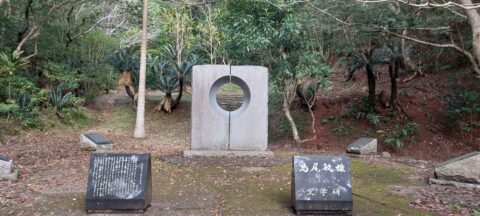
Download
Veranstaltungsort
DIJ Tokyo (access) and online
Anmeldung
This is a past event. Registration is no longer available.
DIJ Mailing Lists
Please subscribe below to stay informed about our research activities, events & publications:
The Construction of Culture and Identity in Shimao Toshio's Writings About the Ryūkyū Islands
6. November 2025 / 6.30 pm (JST) / 10.30 am (CET)
Liliane Höppe, University of Vienna/DIJ Tokyo
The Japanese author Shimao Toshio (1917-1986) exemplifies the complex interaction between cultural production and postwar debates on culture and identity in Japan. In his Southern Island essays, Shimao explores the cultures of Japan and the Ryūkyū Islands while highlighting peripheral regions as integral components of Japanese culture. These writings drew the attention of post-war intellectuals like Okamoto Keitoku and Arakawa Akira, linking Shimao’s texts with the political discussions on Okinawan culture and the anti-reversion discourse of the late 1960s and early 1970s. At the same time, Shimao’s writings were criticized for stereotypical and essentialist depictions of Okinawa that seemed to reinforce Japan’s claim over the Ryūkyū Islands, leading to divergent readings of his texts.
Liliane Höppe’s dissertation examines Shimao’s conception of culture and identity—both on the Japanese mainland and in the Ryūkyū Islands—within the broader postwar discourse of cultural homogeneity. She presented the current state of her project and preliminary findings from the dissertation focusing not only on individual perspectives but also on broader processes of (re)conceptualizing Japanese culture and identity in the postwar decades. Combining computer-assisted quantitative analysis using KH Coder with qualitative text analysis, her research offered a data-driven perspective that unraveled ambivalent narrative and examined ideological nuances on a micro as well as macro level.
Liliane Höppe is a doctoral candidate at the Institute of East Asian Studies at the University of Vienna, specializing in cultural studies. During her master’s degree in Japanese Studies at the University of Vienna, she focused on Okinawa Studies and the discourse surrounding Shimao Toshio’s concept of Yaponeshia. She previously conducted research in Nagoya and at the Hosei Institute for Okinawan Studies from October 2023 to March 2024 as part of the Hosei University International Fund (HIF) Foreign Scholars Fellowship. Since September 2025, Liliane has been a PhD student at the DIJ Tokyo.